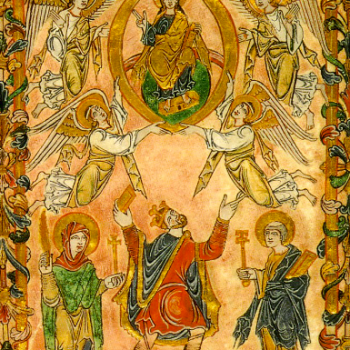The Year of Jubilee came at the end of seven seven-year cycles. In the fiftieth year, not only would debts be forgiven, slaves freed, and the land given rest, but also all land was returned to its original deed-holders, effectively banning outright sale of land and only allowing land to be leased for fifty years or less.
This government regulation reinforced the view among the Israelites that natural resources belong to God, not humanity. We are simply the stewards of land entrusted to us temporarily by God.
It also created conditions that would prevent any Israelite household from falling into multi-generational poverty. After 49 years, even the most destitute would reclaim the land given to their ancestors as they entered the Promised Land. The Year of Jubilee functioned as an equalizing reset button among the Israelites, preventing the accumulation of gross wealth and the entrenchment of gross poverty.
While the United States is not a theocracy, Israel's Year of Jubilee offers a useful picture of the priorities within God's economy. In God's economy, unlimited business growth is not an expectation. Rather, God imposes regulations on the business sector that prevent their growth from reaching the point of empire. In God's economy, the well-being of workers and the land matters. God's regulations limit exploitation and offer conditions conducive to flourishing by providing Sabbath and Sabbatical-year rest for workers and the land and by offering Jubilee debt forgiveness for all those enslaved to pay off debt. In God's economy, there is no interest on loans to fellow Israelites. (Deuteronomy 23:19) In God's economy, private individual ownership of land does not exist. Rather, land is owned by God alone and exists for the common good of all the people and of the wild animals that live on the land. (Leviticus 25:1-7)
This is what God's dominion looks like. It is this dominion that Jesus announced as He read the Isaiah 61 prophecy in that Nazarene synagogue. The Year of Jubilee and the reign of God were at hand, and they stood in direct opposition to the kind of dominion practiced by King Herod and the Roman Empire. With his Luke 4 pronouncement, Jesus declares a divine revolt against the unjust systems and seditious priorities of the kingdoms of men. InJesus' proclamation we see that the dominion of God prioritizes the disenfranchised, the marginalized, the oppressed, and the poor. And we see, above all else, that Jesus has come so that the image of God might flourish in people, not the image of earthly kings on coins.
ECONOMIC NEO-LIBERALISM GAINS ROOTS
From 1980 until the 2008 global market crash, the chosen economic system of the United States was a neo-liberal brand of free-market capitalism. The three pillars of basic capitalism are private ownership, profit motive, and the cultivation of a competitive market. True free-market capitalism is distinguished by its total trust in market supply and demand to maintain economic balance in society with limited government intervention. Economic neo-liberalism, not to be confused with political liberalism, is an economic concept with roots in the modern Conservative movement.39 The concept gained a foothold in U.S. economic policy during Ronald Reagan's two terms in the oval office. The goal of neo-liberalism is to transfer control of the economy from the public to private sector. Neo-liberals (also referred to as free-market fundamentalists) believe that this transfer will make government more efficient and the economy more nimble and able to respond to market demands.
Neo-liberal economic policies were most notably enshrined in the 1989 Washington Consensus, a consensus of the World Bank, the International Monetary Fund (IMF), and the U.S. Department of Treasury. The national and international outcomes of the Consensus and our chosen economic system include: 1) radical deregulation of international corporations and the banking industry, 2) privatization of public resources and utilities, 3) consent for offshore tax shelters and deep tax-cuts for the top tier of tax payers and increased taxes for the middle class and the poor through wage and consumption taxes, 4) the demise of unions, and 5) the pact between the World Bank, IMF, and the U.S. Treasury forced every developed and developing economy in the world to allow the market to govern everything.40 Thus most of the world lived under the market's dominion.
WORKERS AND THE POOR CARRY THE BURDEN
This chosen economic system laid the bulk of burden on the shoulders of workers and the poor. When Reagan won the 1980 presidential election the average household debt was approximately 48 percent of the nation's Gross Domestic Product (GDP). By December 2009, household debt had ballooned to 96 percent of GDP.41 Mortgage foreclosure rates were 0.31 percent in 198042 and 14.4 percent by late 2009.43 Likewise, in 1981, the unemployment rate was 7.1 percent compared to just past 20 percent by November 2009.




